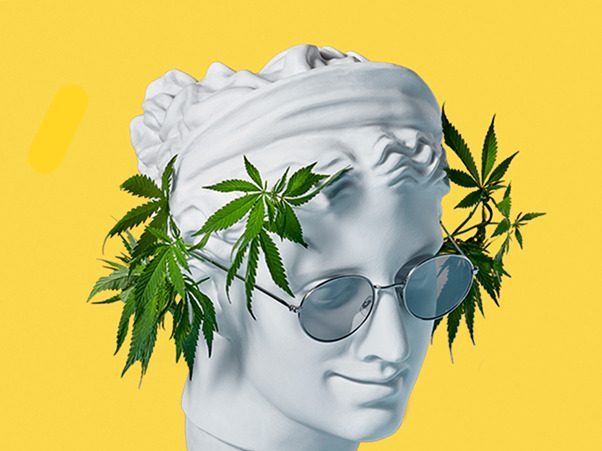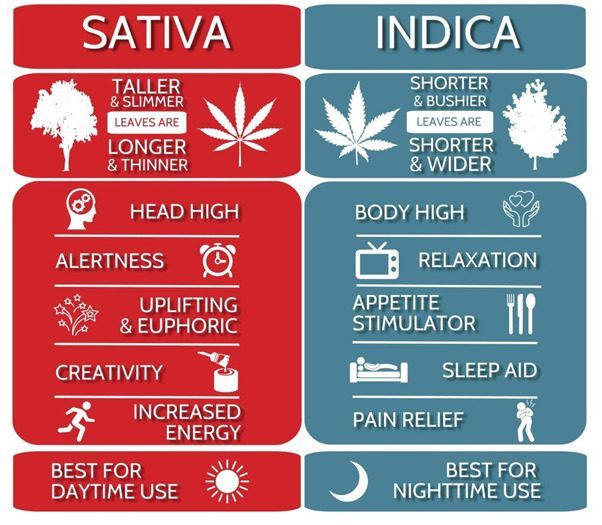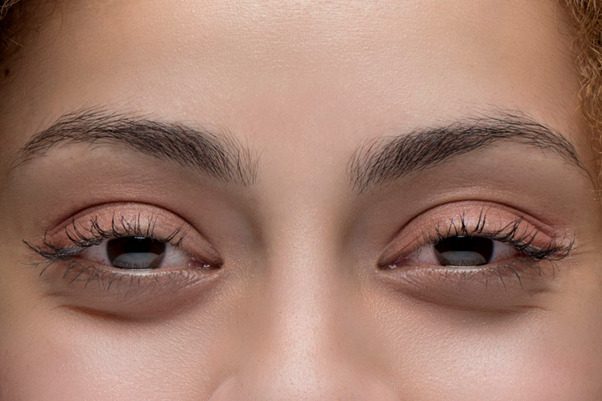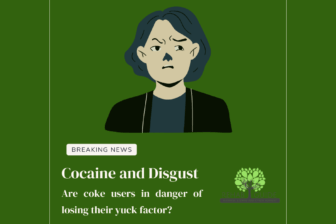What are the signs that someone is high on marijuana?
What are the signs of a person being high on marijuana? If you are worried someone you know is using cannabis, it can be useful to know the signs.
Signs Someone is High on Marijuana
Physical signs of marijuana use include:
- Red eyes (weed eyes)
- Droopy eyelids
- Slurred or delayed speech
- Repeating themselves
- Being unusually happy and giggly
- Seeing or hearing things that are not there
- Being incoherent
- Delayed reaction times
- Appearing confused
- Poor coordination – They may sway, stumble or bump into things
- Smelling of weed or marijuana – Weed and marijuana have very distinctive smells, and the smoke will cling to clothing and hair. (This does not apply to edibles)
If the person is a frequent cannabis user, these effects may become less pronounced as they build a tolerance to the drug’s effects. In which case, frequently smelling marijuana or finding marijuana paraphernalia on a person would indicate use.
The effects of the Marijuana high
Marijuana, also known as pot, cannabis, hash and weed, can produce a very profound high.
Ways in which a person can get high on marijuana include:
- Adding weed, grass or crumbled solid marijuana to tobacco and smoking it
- Adding marijuana to cooking and eating it
- Vaping the drug through a vaporiser
- Inhaling marijuana vapour through a bong
- Consuming THC edibles
- Drinking Marijuana-infused teas and drinks
- Using it in hash or wax form
Depending on the type of cannabis used and its THC content, a cannabis high can make you feel mellow and relaxed or euphoric and giggly with raised energy levels. Some strains of marijuana can produce hallucinations and have trippy-like effects.
There are now so many different types of marijuana available that the drug can produce very different effects, depending on the particular strain.
The Marijuana high you experience can also be very different to anyone else; even if you are using the same strain of marijuana and consuming it in the same way.
The way in which you take marijuana can also affect the high you feel and how long it lasts.
What it feels like to be high on Marijuana
Whilst different people can react to marijuana in different ways, there are some common effects that marijuana produces.
Whilst high on marijuana, you may feel:
- Euphoric
- Relaxed
- Easily amused
- Inspired
- Giggly
- Creative
- Hungry
- More connected to those around you
- Philosophical
When you are high on weed or marijuana, you may also see colours more vividly. Sounds may seem louder than usual and food may taste better. Your sense of touch and smell can also become heightened. Your eyesight can become distorted, as can your perception of time. What may seem like hours to you, in reality, could be minutes.
How much marijuana you take and the particular type you take will also affect the high you experience.
Marijuana also has some less desirable effects. The side effects of being stoned include:
- Anxiety
- Paranoia
- Frozen – unable to move
- Confusion
- Nausea
- Dizziness
- Poor coordination
- Clumsiness
- Stoned eyes
- Inability to concentrate
- Feeling scared
“Marijuana that has a particularly high THC concentration is more likely to cause bad effects.”
In instances where you smoke a particularly strong brand, you may hallucinate and feel out of touch with reality. You are also at higher risk of having a psychotic episode by using stronger types of marijuana.
Marijuana: Inhaling v ingesting
Marijuana can be smoked (with tobacco or through a bong), vaped using a vaporiser, or eaten. There are numerous Marijuana edibles on the market including a variety of sweets and foods. The way in which you take the drug can have an effect on the marijuana high you have.
The way in which you take marijuana affects the following:
- How long it takes to feel a marijuana high
- How long a marijuana high lasts for
- The intensity of the marijuana high you experience
The effects of inhaling Marijuana
If you smoke or vape Marijuana, you will feel the effects within a few seconds. These effects will peak within 30 minutes of inhaling the drug. The effects of smoking marijuana can last up to 6 hours. Some residual effects can remain for up to 24 hours.
The effects of ingesting marijuana (Cannabis edibles and Food)
If you eat marijuana, the effects will be different from if you inhale it.
“Consuming cannabis means it takes a lot longer for the drug to enter your bloodstream.”
Once ingested, Marijuana will travel from your stomach to your liver. Your liver then converts THC into a more potent form. This, combined with the original THC consumed, produces a more pronounced high. What is more, the high produced from consuming marijuana edibles last longer than if you had smoked the drug.
By ingesting marijuana, it can take 30 minutes up to 2 whole hours before you feel high. The full effects of edible marijuana can take up to 4 hours to reach a peak.
“Effects from edibles can last for up to 12 hours.”
That’s twice the length of time of smoking. The residual effects of edible marijuana can last for up to 24 hours, sometimes longer.
If you have a problem with cannabis yourself, you can find out more about marijuana addiction here and how to get help.

Marijuana is the most popularly used illegal drug in the UK, both among adults ages 16 to 59 years and in the younger generation (16 to 24 years).
Last year, in 2020, 18.7% of 16 to 24-year-olds admitted to having used marijuana. This is much higher than the second most widely abused drug, which is powder cocaine[1]
With Marijuana use on the rise, it is increasingly important to be able to spot the signs of someone high on weed. Despite general public opinion, Cannabis is not a safe drug when it is abused.
Over the years, street marijuana has been cultivated to be stronger, delivering more potent effects.
“THC content in many marijuana strains is now at its highest ever.”
Marijuana, in any form, has the ability to lead to addiction and dependence, much the same as with any other addictive element.
The dangers of edible marijuana
With edible THC you are much more likely to overdose. This will cause you to feel the ill effects of the drug and may make you very unwell.
Many who ingest marijuana grow impatient as they wait to feel high. They then assume they have not taken enough, and so they take more. Subsequently, they can inadvertently overdose. Which happens when both the original dose and the second dose kick in.
This is something to be very mindful of, especially if you are trying edible marijuana for the first time. Just because your friends feel the effects before you doesn’t mean you are immune to the drug’s effects. It may just take a bit longer for the effects to work on you.
The Long-term Effects of Marijuana Use
If you use weed or cannabis frequently, over a prolonged period of time, it is much more likely you will develop a marijuana addiction.
Marijuana addiction and dependence can cause long-term health implications and adverse effects. Not all of these effects will be reversible by quitting marijuana.
Long-term effects of marijuana use include:
- Anxiety
- Depression
- Marijuana dependence
- Marijuana addiction
- Paranoia
- Change in personality
- Increased risk of acute marijuana toxicity
- Increased risk-taking, such as drug driving or attempting everyday activities as they feel they are unaffected by the drug
- Tobacco-related illnesses (if they smoke marijuana with tobacco)
- Increased risk of developing a serious mental health illness
If you or a loved one are experiencing any negative effects as a result of your marijuana use, this is a sign you should stop smoking weed.
How to take marijuana without getting high
If you want to use marijuana, perhaps for medical purposes but are worried it may make you feel high, you are best to discuss your options with your healthcare provider first.
CBD can be a very effective painkiller and is legal, providing it has a THC (tetrahydrocannabinol) content of less than 0.2% and is EU-approved.
Medical marijuana can only be obtained on prescription. In the UK, there are still some reservations about prescribing medical-grade marijuana despite its numerous proven benefits. However, consultants and private doctors are more likely to prescribe if they feel it would benefit your condition.
Medical marijuana does contain THC, but it is high-grade and has passed numerous testing procedures. It is also the safest way to take marijuana without getting excessively high.
Addicted to weed?
If you are addicted to weed, it is highly likely you will need professional help. Weed addiction isn’t something you can overcome on your own and is considered a severe substance use disorder.
“Being addicted to weed is also more common than you probably realise and there is plenty of help you can access.”
Recent research suggests that 30% of those who use weed/marijuana have some degree of a marijuana/weed use disorder.
Help for a weed addiction can be sought through your local drug and alcohol services.
We also specialise in treating all forms of marijuana addiction, including weed addiction and dual diagnosis. Call our friendly experts today and take our free weed addiction assessment.
Our trained addiction counsellors are in recovery themselves and can help ensure you access the right help, support and treatment that is tailored to your specific treatment needs.
Signs of marijuana addiction
Addiction is diagnosed when set criteria are met. This criterion is the same regardless of the substance involved.
5 Signs of marijuana addiction:
- Marijuana dependence – suffering from Marijuana withdrawal symptoms such as irritability, mood swings, cravings, restlessness and sleep difficulties [6]
- Cravings for marijuana – Cravings only occur in a person who suffers from a substance use disorder.
- Progression – Due to your brain adapting to the effects of marijuana, you will find that your marijuana use has increased in frequency and/or strength. This happens when the brain develops a tolerance to marijuana and becomes desensitised to the effects of the drug.
- Increased risk-taking – You may find that due to NEEDING marijuana in order to function and feel normal you take risks. An example of this would be drug driving or looking after minors.
- Marijuana relapse – If you have ever attempted to quit marijuana and relapsed, this is a sure sign of addiction. Addiction is characterized by compulsion. Addiction compulsion will cause you to take addictive substances regardless of the possible consequences that follow.
Marijuana addiction will have adverse effects on other areas of your life. If your personal relationships, finances, occupation or mental health have suffered as a result of your marijuana use it is time to seek help!
The effects of Marijuana on the brain – How weed makes you feel high

Marijuana, pot, cannabis, weed, grass, hash all come from the same cannabis plant, just different strains. The THC extracted from the cannabis plant will affect your brain and make you feel high! This is why most people try pot in some form or another.
THC – tetrahydrocannabinol is the active ingredient in all forms of marijuana that acts on the brain and body. The higher the concentration of the THC in the type of pot you use, the more profound the effects you will feel.
“Once THC reaches your brain, huge amounts of dopamine are released and this is what causes the marijuana high.”
Dopamine is an organic brain chemical that rewards us for engaging in activities such as eating, exercise and sex.
Dopamine and euphoric recall
When dopamine is artificially instigated through use, the brain lays down a new memory of the euphoric feeling. In a person who suffers from marijuana addiction, even when they are not using the substance, the brain will recall this feeling (euphoric recall), resulting in the person taking it again and again and again!
In addition to dopamine being released when you use marijuana, there are also cannabinoids, which affect the type of high you experience. Researchers have identified over 113 distinct cannabinoids in different cannabis plants. Cannabinoids mirror our own endocannabinoids in our bodies. When the two meet, they unlock different kinds of highs.
Marijuana head high vs body high – What is the difference?
There are two types of Marijuana high, a head high and a body high. Whether you feel a head high or a body high will largely depend on the strain of the cannabis plant you use.

There are two main types of the cannabis plant, the Sativa and the Indica cannabis plant.
These plants produce different types of high. Strains of marijuana that are related to the Sativa plant will generally produce a more heady buzz type of high – known amongst stoners as a “head high”. The effects of Indica strains of marijuana produce a more relaxed and chilled high in the body, known as a “body high.”
Frequent cannabis users may well alternate the two strains, using Sativa to be more productive during the day and Indica to relax and assist sleep at night.
With so many different cultivated strains of cannabis around today, some mixes of marijuana will include both. You may start with a head high and finish with a body high. It is so important to know exactly what you are taking and not just blindly try any type of pot! [8]
Marijuana detox
If you need help to quit marijuana, you may well benefit from a medically managed marijuana detox. Medical detox will diminish and eradicate any marijuana withdrawal symptoms you experience. This makes it much easier to ride the usual two week withdrawal period and increases your chances of successfully stopping weed.
As marijuana withdrawal symptoms strongly indicate a weed addiction, it is very important that you follow a recovery or rehabilitation programme after detoxification.
Addiction causes lasting changes to the brain, making it extremely difficult to stay clean. Thankfully, recovery is possible!
Recovery from weed addiction
Recovery from a weed addiction can be achieved by undergoing evidence-based treatments and then applying these to everyday life.
Our CQC registered treatment centres specialise in treating marijuana addiction and dual diagnosis. We offer a caring, non-judgmental approach and will support your family throughout the duration of your stay.
Imagine a life that is free from marijuana, from cravings and from mental health crises.
This is exactly what we offer. In addition to a full medical detox, we provide effective marijuana addiction treatments. Our registered professionals will deliver deep healing techniques and teach you invaluable coping strategies to manage your condition.
Call us today and speak with a friendly member of our team who will assist you in taking the first important steps towards recovery from addiction.
Sources:
- Drug misuse in England and Wales – Year ending 2020 https://www.ons.gov.uk/peoplepopulationandcommunity/crimeandjustice/articles/drugmisuseinenglandandwales/yearendingmarch2020
- Marijuana facts for teens – https://www.drugabuse.gov/publications/marijuana-facts-teens/want-to-know-more-some-faqs-about-marijuana
- Cannabis inhaling v ingesting – https://www.ccsa.ca/sites/default/files/2019-06/CCSA-Cannabis-Inhaling-Ingesting-Risks-Infographic-2019-en_1.pdf
- CBD regulation UK – https://medicpro.london/cbd-regulation-laws-uk/
- Hasin DS, Saha TD, Kerridge BT, et al. Prevalence of Marijuana Use Disorders in the United States Between 2001-2002 and 2012-2013. JAMA Psychiatry. 2015;72(12):1235-1242. doi:10.1001/jamapsychiatry.2015.185
- Gorelick DA, Levin KH, Copersino ML, et al. Diagnostic Criteria for Cannabis Withdrawal Syndrome. Drug Alcohol Depend. 2012;123(1-3):141-147. doi:10.1016/j.drugalcdep.2011.11.007
- Effects of marijuana – how weed affects your mind and body – https://www.webmd.com/mental-health/addiction/marijuana-use-and-its-effects#1
- What’s the difference between a head high and body high? https://www.medmen.com/blog/wellness/head-high-vs-body-high





